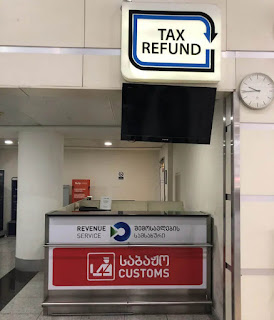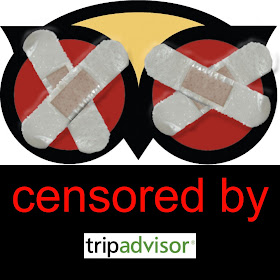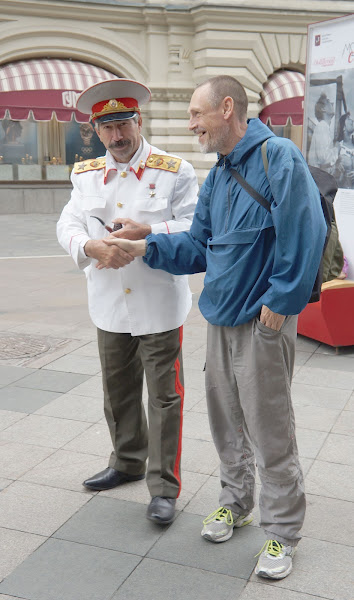Separatist Corsica, France
Corsicans don’t leave the French cold. Some people recommended the island for us warmly, while others advised to avoid it. We wanted to see ourselves what to think about this small, separatist island and its trigger-happy inhabitants.
We avoided the high season and headed there in December. It turned out to be a good choice. We saw only a couple of other tourists, but still enjoyed relatively mild climate. In the summertime it is said to be very hot, crowded and crazy expensive as there are some two million tourists in Corsica every year.
The easiest way to go to Corsica from France is to take a ferry from Toulon or Nice to Bastia, or to Ajaccio. The 10-hour voyage was comfortable as the ferry was half empty and we could sleep on the restaurant benches. We arrived in Bastia which is a small, beautiful port city. Corsicans say the city is for rich people so housing tends to be more pricey than in other parts of the island. People were friendly and we didn’t detect the suspiciousness that we had been warned about.
Corsican Separatism
Our next destination Corte was different. This tiny university city is one of the strongholds of Corsican separatists. When we arrived to the city, some of the French names in bilingual street signs were sprayed over and the abbreviation FLNC (the National Front for the Liberation of Corsica) was written on approximately one third of the buildings in the city. There were also texts like “Arabe fora” or "I Francesi Fora" (IFF). Arabs and French, go away.
Corsican people don’t like foreigners. The reason is historical. Corsica has always been vulnerable to invasions thanks to its exuberant coastline (more than 1000 kilometres). The enemies had an easy access to the island. Corsica used to be part of Italy, but it’s now under the French governance. Corsicans show their dislike by putting bombs to the houses and cars of French people living in the island. Usual targets are politicians, high civil servants or rich, foreign landowners. We met a Corsican policeman who had been working there for four years, and during that time there had been some 50 bomb attacks. Outsiders are rarely hurt in the attacks.
Corsicans are proud of their piece of land and want to keep it for themselves. They have their own language and culture, and they are not too interested in external influence. This concerns, of course, only a minority of Corsicans, namely those who are staying in the island. Corsica has some 280 000 inhabitants whereas there are some two million Corsicans living outside the island, for example 300 000 in Marseille alone.
Separatist movements are appreciated among the islanders, although sometimes they only fight with each other. We saw some Corsican students who were part of a student association called Jeunes Paoli, which is a bit like Hitler Jugend used to be in Germany in the eve of WW2. At the time Jeunes Paoli students were striking in the university because of administrative problems, namely corruption. They had chained all the doors so that the students couldn’t go to their classes.
The World’s Slowest Train
From Corte we continued to Ajaccio and crossed the country by a cute, little diesel train of three wagons. Train is quite a nice way to travel through the island although Corsicans themselves don’t trust it. There are often strikes and the connections are not frequent. In addition, Corsicans are, just like the French, extremely dependent on their cars and couldn’t imagine living without their precious, unecological tin cans. In Corsica travelling by car is not convenient as the floods wipe out tiny serpentine roads and block access to villages.
We were not in a hurry, so train was more enjoyable. It is extremely slow. A 70-kilometre trip took two hours but the views were stunning: snow-topped mountains, clear water mountain rivers, and lots of forest that cover 40 percent of the island. The weather changes a lot according to where you stay and even within one place. We saw beautiful and warm sunshine, rain and a hailstorm during one day. Up in the mountains there was snow. As the distances are short, you can easily ski in the mountains and swim in the sea during the same day. In December, however, the sea was a bit too chilly for us.
Questionable Value
Compared to the mainland, Corsica is unreasonably expensive, but that is likely to apply to foreigners only. Outsiders are not welcomed and if they enter the island, they must pay for it. That appeared to be the Corsican attitude. Food wise the prices were quite OK. In bigger cities there are supermarkets where you can find reasonable prices, although fruits and vegetables tend to be much more expensive than in France as most of the products are imported. It is not hard to imagine how bad it can be during the high season.
Customer service varied from very rude to very friendly as everywhere, so we can’t really say that we agree with those French people who avoid Corsica because of its people. Corsican separatism, however, is as funny as Tibetan: the place could never survive without French businesses, money and infrastructure. It was a beautiful place to visit, but we don’t see the point in dividing this tiny world to even smaller pieces. It would be better to get rid of all countries as they divide people instead of uniting them.
Country: France










Comments